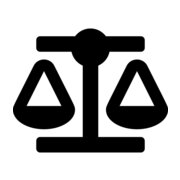Best Ethics and Professional Responsibility Lawyers in Fribourg
Share your needs with us, get contacted by law firms.
Free. Takes 2 min.
List of the best lawyers in Fribourg, Switzerland
About Ethics and Professional Responsibility Law in Fribourg, Switzerland
Ethics and Professional Responsibility law in Fribourg, Switzerland, focuses on setting standards of behavior for professionals such as lawyers, doctors, accountants, and public officials. These standards are designed to ensure integrity, competence, and fairness in professional conduct. The framework is built upon federal Swiss law, cantonal regulations, and the governing norms of professional associations. In Fribourg, adherence to ethical rules is a cornerstone of maintaining public trust and the smooth functioning of local professions.
Why You May Need a Lawyer
Legal assistance in Ethics and Professional Responsibility matters can be essential in a variety of situations. Common scenarios include facing allegations of professional misconduct, conflict of interest claims, breaches of confidentiality, or accusations of violating codes of conduct. Individuals may also require guidance to comply with ethical guidelines, respond to disciplinary investigations, or challenge unfair decisions affecting their professional standing. In some cases, professionals need help understanding their obligations under local and national laws, especially when the stakes involve potential suspension or revocation of licenses.
Local Laws Overview
Fribourg is governed by a combination of federal and cantonal laws regarding professional conduct. The Swiss Code of Obligations and other federal statutes outline core duties such as maintaining client confidentiality, avoiding conflicts of interest, and upholding standards of care. In addition, specific professions are regulated by their own codes, such as the Swiss Bar Association’s Rules of Professional Conduct for lawyers. Cantonal authorities, such as the Conseil de la magistrature and professional chambers, oversee disciplinary matters in Fribourg. Key aspects include requirements for continuous professional education, procedures for handling complaints, and the right to a fair disciplinary process. Noncompliance can result in sanctions ranging from warnings to suspension or removal from professional registers.
Frequently Asked Questions
What is considered a breach of professional responsibility in Fribourg?
A breach occurs when a professional fails to meet the ethical or legal standards applicable to their occupation, such as breaching confidentiality, acting dishonestly, or engaging in conflicts of interest.
How are ethics violations investigated in Fribourg?
Investigations are typically conducted by cantonal oversight bodies or professional chambers. The procedure involves a preliminary review, a formal inquiry, and an opportunity for the accused to respond.
What are the possible consequences of violating professional ethics?
Consequences can include warnings, fines, suspension, required retraining, or permanent removal from the professional register, depending on the severity of the misconduct.
Who can file a complaint about a professional's conduct?
Clients, colleagues, employers, or any member of the public can file a complaint with the appropriate supervisory authority or professional association in Fribourg.
Are there specific codes of conduct for different professions?
Yes, each profession has its own code of conduct, such as those for lawyers, doctors, and accountants, which set out detailed ethical obligations and disciplinary processes.
Can professionals appeal disciplinary decisions?
Yes, there is usually a right to appeal disciplinary decisions through internal association mechanisms and, if necessary, through cantonal administrative courts.
Is legal representation necessary during disciplinary proceedings?
While not always mandatory, legal representation is strongly recommended to ensure the professional's rights are protected and the best possible outcome is achieved.
How are conflicts of interest addressed?
Conflicts must be avoided or disclosed immediately. Professionals are required to withdraw from situations where their impartiality could be compromised.
What is the role of continuing education in professional ethics?
Continued ethical education is mandatory in many professions, ensuring practitioners remain up to date with current standards and legal requirements.
Do ethical rules apply to retired or non-practicing professionals?
Some ethical obligations, especially regarding confidentiality, continue to apply to professionals even after retirement or cessation of practice.
Additional Resources
- The Fribourg Bar Association (Ordre des avocats du canton de Fribourg) provides guidance and oversight for legal professionals. - The Swiss Bar Association (Fédération Suisse des Avocats, FSA) offers information on professional rules and disciplinary processes. - The Fribourg Cantonal Medical Board and other professional chambers oversee standards for healthcare and other occupations. - The Conseil de la magistrature oversees judicial conduct. - The Swiss Ethics Committee (for healthcare professionals) can provide opinions on complex ethical issues. - The Canton of Fribourg's official website offers contacts for complaints and further guidance on professional conduct.
Next Steps
If you believe you may require legal advice or representation in an Ethics and Professional Responsibility matter, consider the following steps. Gather all relevant documentation and evidence related to the situation. Identify the governing code of conduct for your profession. Contact a qualified lawyer or professional association with experience in ethics and professional responsibility in Fribourg. Many organizations offer initial consultations and guidance. Act promptly, as disciplinary and complaint processes often have specific deadlines. Protecting your professional reputation and understanding your rights is crucial, so seeking early advice can make a significant difference in the outcome.
Lawzana helps you find the best lawyers and law firms in Fribourg through a curated and pre-screened list of qualified legal professionals. Our platform offers rankings and detailed profiles of attorneys and law firms, allowing you to compare based on practice areas, including Ethics and Professional Responsibility, experience, and client feedback.
Each profile includes a description of the firm's areas of practice, client reviews, team members and partners, year of establishment, spoken languages, office locations, contact information, social media presence, and any published articles or resources. Most firms on our platform speak English and are experienced in both local and international legal matters.
Get a quote from top-rated law firms in Fribourg, Switzerland — quickly, securely, and without unnecessary hassle.
Disclaimer:
The information provided on this page is for general informational purposes only and does not constitute legal advice. While we strive to ensure the accuracy and relevance of the content, legal information may change over time, and interpretations of the law can vary. You should always consult with a qualified legal professional for advice specific to your situation.
We disclaim all liability for actions taken or not taken based on the content of this page. If you believe any information is incorrect or outdated, please contact us, and we will review and update it where appropriate.











